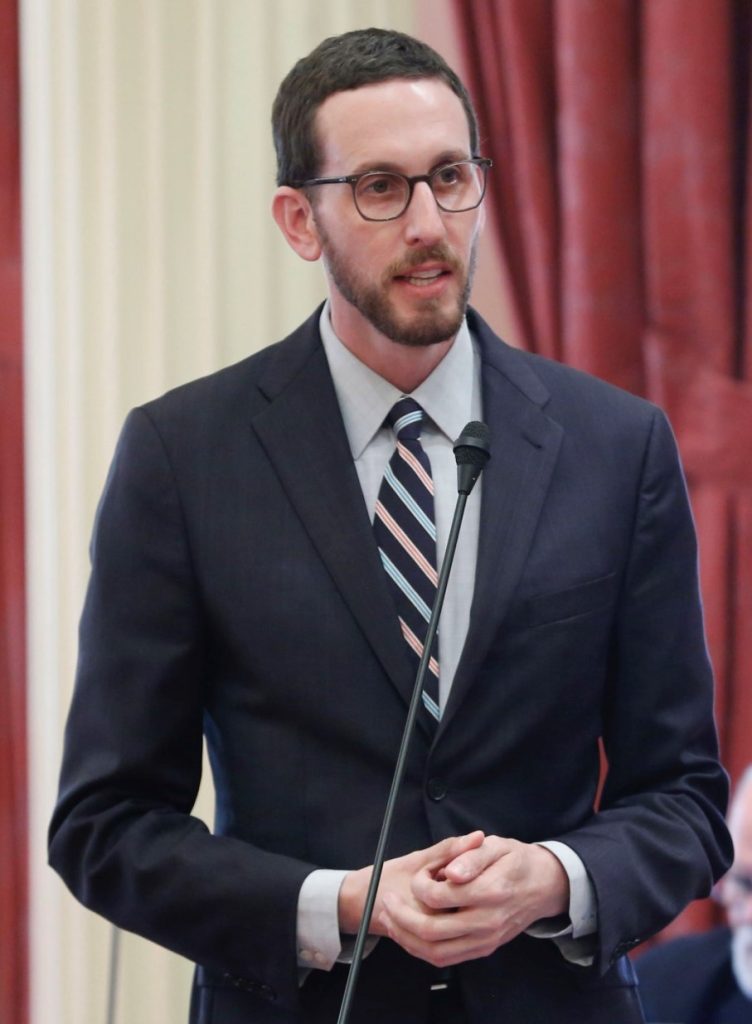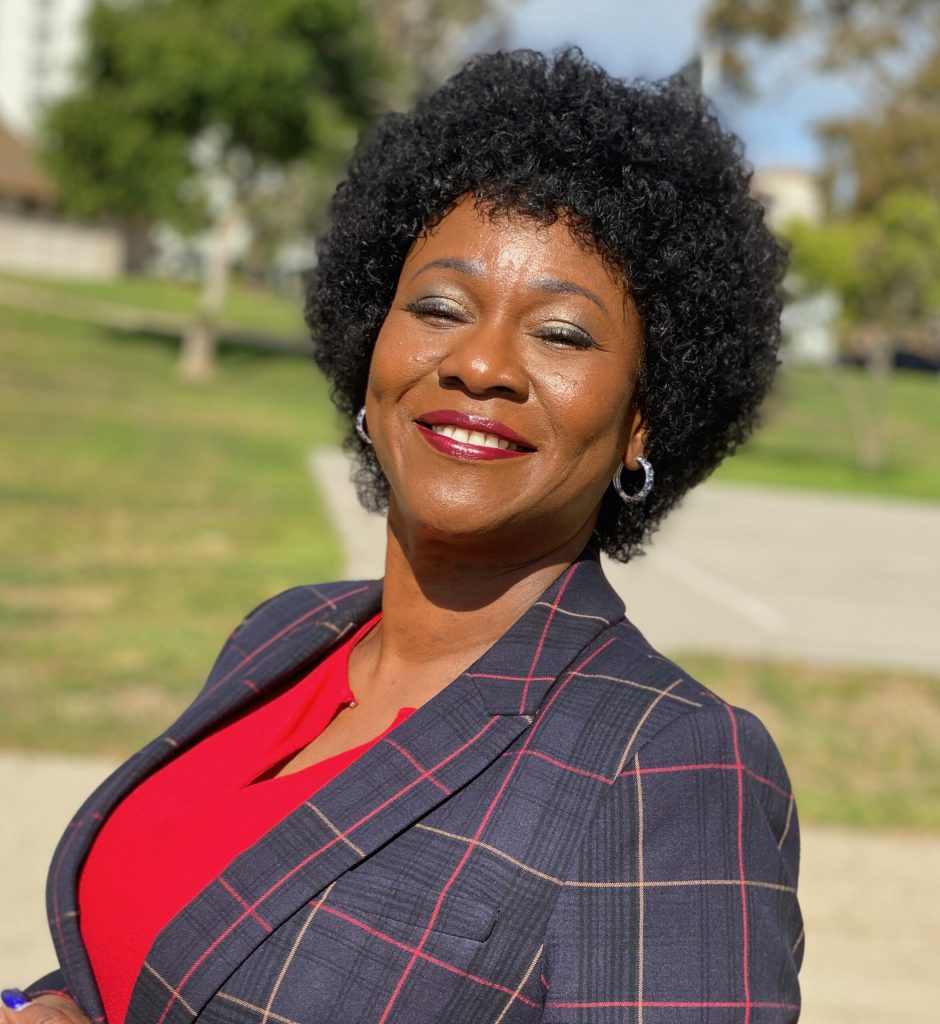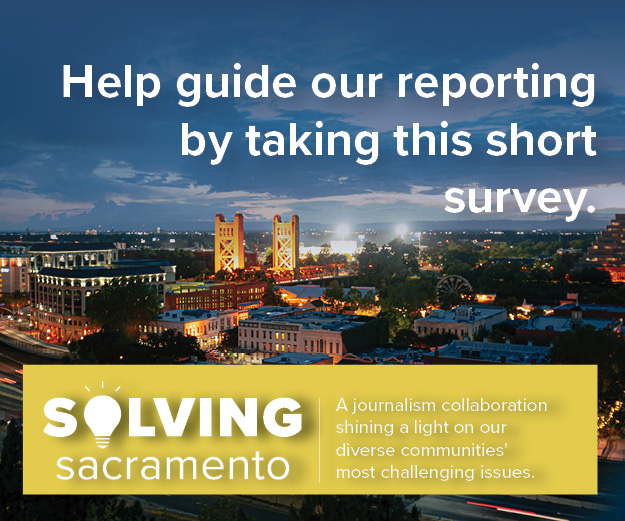Sen. Scott Wiener’s SB 4 bill aims to streamline new building projects
By Ken Magri
The first steps in solving California’s affordable housing crisis are finding available land to build on and streamlining a cumbersome bureaucratic process that slows building projects down to a snail’s pace. A new bill introduced last December aims to tackle both of these issues.
State Sen. Scott Wiener of San Francisco and Assemblymember Tina McKinnor of Inglewood introduced Senate Bill 4, which streamlines the approval process for colleges and faith institutions wanting to build affordable housing on their own available land.
Many parcels of surplus land in California are owned by churches, synagogues, temples and nonprofit colleges. But zoning laws in plenty of cities across the state prohibit building multifamily apartment buildings, or any housing on such parcels, according to information provided by Wiener’s office. Additional delays often come from repeated lawsuits over environmental issues, whether legitimate or not.
“It’s not unusual for it to take three to four years and millions of dollars to resolve a single lawsuit,” Wiener’s team noted in a press release.
Provisions in SB 4 ensure that any new housing units will be for low-income occupants, with 20% set aside for moderate-income families. All units must be built well enough to last 55 years and the rent for all units must be affordable, meaning it does not cost the tenant more than 30 percent of their gross income. While two similar bills, going back to 2020, failed to become law due mostly to union opposition, this time Wiener hopes to “thread the needle” between support and opposition.
“Adding affordable housing on properties owned by faith-based organizations is an important tool to address California’s housing and housing affordability crisis,” said co-sponsor Assemblymember McKinnor. “We need more of this.”
A 2020 analysis by UC Berkeley’s Terner Center for Housing Innovation identified over 38,800 acres of land in California utilized for religious purposes; that includes 1,965 acres in Sacramento County alone. But Wiener said the study only looked at the state’s largest counties. “It’s even more, and the Terner Center has told me they are going to update the study to conform better to this bill,” he said. “The amount is significant. We know that much.”
If passed, SB 4 would make these land parcels exempt from the zoning restrictions of local governments by prioritizing the statewide need for housing over local needs. “One of the challenges to developing housing, especially in urbanized areas, is finding sites, and SB 4 could be a piece of solving that puzzle,” said Diane Luther, a Sacramento-based housing consultant. “SB 4 seeks to streamline approvals so that, if the proposed project meets all existing local criteria [like zoning], it must be approved ‘by right,’” she said.
Will local governments want to have their powers reigned-in?
“It is a bit worrisome when the state decides to take power away from local jurisdictions,” said Greg Paquin, president of the Folsom-based real estate consultancy, The Gregory Group. “California is a very large geographical area with a large and diverse population and one size doesn’t always fit all.”
Wiener acknowledged that while there was local government opposition when they first did the bill in 2022, “it was not aggressive,” he said. “I’m sure there will be some opposition, but we’ll see how it goes this year.”
CEQA and the pattern of legal delay

The purpose of the California Environmental Quality Act, Paquin said, “is to inform the public about the potential environmental impacts of development, including housing.” But he and other housing experts agree that CEQA can be misused for delaying a building project. “Through the years, CEQA has proven to be a reliable instrument in this regard.”
Paquin also said that the use of CEQA lawsuits, when compounded with judicial overreach, go far beyond their original intent.
Luther explained that SB 4 “would eliminate tools often used by opponents, such as endless public hearings or the threat of [CEQA] appeals.” One aim of the bill is to remove CEQA entirely by adding to the types of housing projects exempt from its jurisdiction.
But housing advocates who are already apprehensive about CEQA-inspired lawsuits now must await an upcoming court ruling that Wiener says could send SB 4 back to the drawing board. The case involves UC Berkeley’s ability to turn People’s Park into student housing.
While this controversy is not directly related to SB 4, a ruling against UC Berkeley could have negative repercussions for affordable housing projects across the state. “It would dramatically expand CEQA and give more tools to stop new housing,” said Wiener.
This historic off-campus parcel between Dwight and Haste streets has been cleared for a new building that will accommodate dorms for 1,100 students and supportive housing for 125 low-income residents. But protests and repeated legal challenges have halted progress. “All the university wants to do is build student housing, and these opponents won’t stop filing lawsuits,” Wiener said.
The current delay comes from a First District Court of Appeals ruling on whether CEQA can require the developers to measure and mitigate potential “social noise” created by student tenants. Based on complaints from neighbors, the court ruled that UC Berkeley failed to consider noisy behavior based on the type of occupants.
“Now we have a ruling that would inject stereotypes and racism into CEQA by requiring an analysis of the kind of person that would live in a certain type of housing,” said Wiener. “So it equates people talking as having a CEQA impact, which is ridiculous.”
Wide-ranging support for SB 4

Housing organizations like San Francisco’s YIMBY Action, and religious groups like the Jewish Public Affairs Committee of California both support SB 4.
“Driven by our Jewish values and our own history of displacement, many synagogues are eager to address our homelessness crisis and support our neighbors who are most in need,” said JPAC Board Chairman Marty Schenker.
Schenker called Wiener’s bill “a creative solution to help address a critical issue of our time,” adding that “it gives communities of faith the opportunity to perform a real mitzvah, or good deed. We know that our friends in the Muslim, Christian and other faith communities share these same values.”
Assemblymember McKinnor, who will champion SB 4 through the Assembly should it pass the Senate, agrees. “Our faith community is the perfect partner to help revitalize neighborhoods and make sure that every Californian has a safe and affordable place to call home,” McKinnor said.
The Nor Cal Carpenters Union supports SB 4 because it contains provisions about fair wages and health care for construction workers. “Workers who build housing deserve jobs that provide living wages and family health care,” said Jay Bradshaw, NCCU executive officer. “Coupled with apprenticeship opportunities and the strongest labor enforcement tools in the country, this bill will help construction workers rise economically.”
The Southwest Mountain States Regional Council of Carpenters also supports SB 4, but the State Building and Construction Trades Council of California still wants different labor protections than those already included.
Wiener is not discouraged. “We anticipate having other unions come out and support the bill as well,” he said.
This story is part of the Solving Sacramento journalism collaborative. In 2023, we are focusing on finding solutions to the lack of affordable housing in the Sacramento region. Solving Sacramento is a project of the Local Media Foundation with support from the Solutions Journalism Network. Our partners include California Groundbreakers, Capital Public Radio, Outword, Russian America Media, Sacramento Business Journal, Sacramento News & Review, Sacramento Observer and Univision 19.



Be the first to comment on "Proposed law could be a game-changer for new housing on 1,965 acres in Sacramento County "